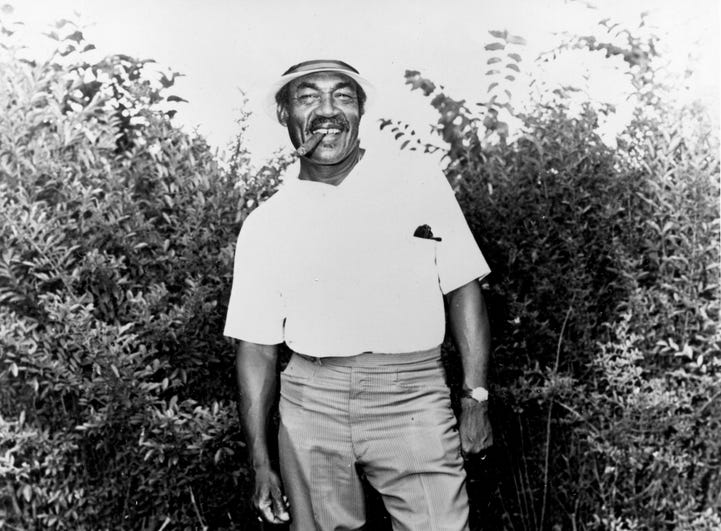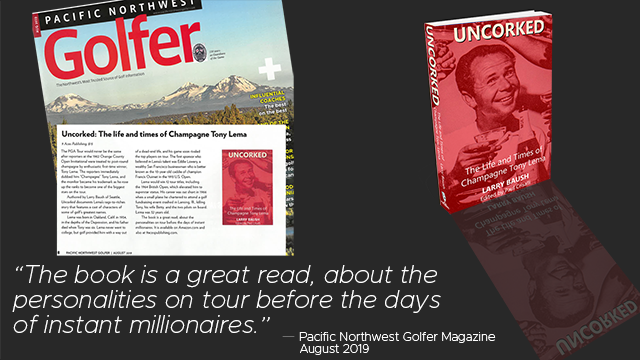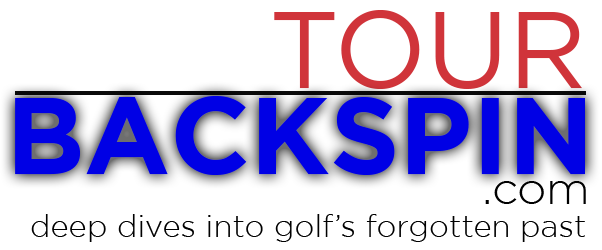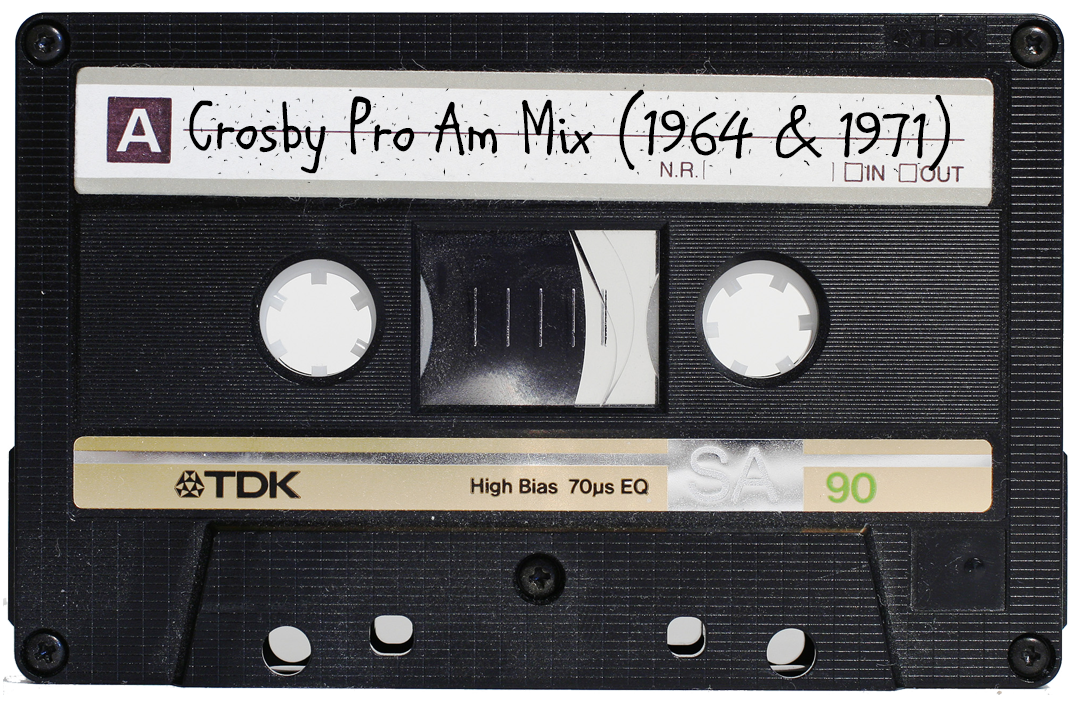⛳ California AG Helps Integrate Tour
Thursday, February 18, 2021 Sign Up
It's the L.A. Open week. Okay, now The Genesis Invitational. Let's rewind the tape and visit the tournament in another era when blacks were first admitted into the PGA of America.
Did you miss a previous newsletter? You can view it HERE. Forward this email to a friend and if they sign up, you both get a sticker set sent to you. Was this newsletter forwarded to you? You can sign up HERE.
Okay, we're on the tee, let's get going!
I'm Here as a Golfer, Man
In 1961 the PGA of America decided to move its championship in 1962 from the Brentwood Country Club in Los Angeles to Aronimink Golf Club in Newtown Square, PA. Two men made this move inevitable; California Attorney General Stanley Mosk and professional golfer Charlie Sifford. Charlie was attempting to play on the PGA Tour. The PGA Tour by-laws made it impossible for Charlie to play in any sanctioned events.
Mosk took exception to the so-called Caucasian clause in the bylaws of the PGA of America that read, "membership was open to professional golfers of the Caucasian race residing in North or South America." Mosk informed the PGA that the organization must end the racial membership restriction if it wanted to continue its tournaments in California, including the 1962 U.S. Open at Brentwood Country Club.
It was impossible for the PGA to conduct tournaments in California without the Caucasian clause while enforcing the clause in other states. Something had to give and on May 17, 1961 the PGA of America executive committee recommended that the Caucasian clause be eliminated. The membership of the PGA would take up the matter at the annual meeting to be held in November. The motion was passed and Charlie Sifford became a member of the PGA of America that same November.
Charlie became the first Black to play on the PGA Tour when he teed it up at the 1962 L.A. Open at Rancho Park Municipal Golf Course. Rancho Park had the very "muni" feature of having the final green enclosed on two sides by high fencing; one to keep balls on the adjoining driving range in the range and not on the course and the other to protect the clubhouse. Charlie endured taunts, threats and racial slurs at that tournament, and every tournament he entered.
Charlie was not allowed to eat in the dining rooms of the clubhouses at most of the courses that hosted PGA Tour events. Friends, fellow players such as Bob Rosburg, Jack Burke Jr, Don January and Bob Goalby would go through the buffet line in the dining room and then take the food to the locker room where they would eat with Charlie.
Charlie opened the 1967 Greater Hartford Open (the name was changed in 1967 from the Insurance City Open) with a first round 68. Late that night he received a phone call at the private residence he was staying at. On the other end of the line was a racist who unleashed a torrent of curses and vile racist epithets and warned him not to show up at the course the next day. Shaken but determined, Charlie showed up and shot a 72, a round he later called one of his best. Charlie won the 1967 Greater Hartford Open by storming from five strokes back to beat Steve Oppermann by one stroke and Gary Player, Ray Floyd, Dan Sikes and Doug Ford by two strokes. The win did not qualify Charlie for an invitation to the Masters as tour winners did not automatically qualify under Augusta's rules at that time.
In 1969 Charlie opened up the first event on the schedule, the L.A. Open, with a remarkable 63 and then followed with even par 71s in each round after that. On the Super Bowl Sunday that Joe Namath and the New York Jets shocked the football world by beating the Baltimore Colts, Charlie was caught by South African Harold Henning who shot a final round 68 to tie Charlie. The two went into a sudden death playoff where Charlie hit the fairway, put his approach shot within six feet of the pin and drained the putt for the victory.
Much had occurred in the country concerning race relations in 1968, especially in the sporting world. Tommy Smith and John Carlos raised their black gloved fists on the medal stand at the Olympic Games in Mexico City. Muhammad Ali and Jim Brown were activists for the cause of not just Black athletes, but Blacks in general. Charlie's win at the LA Open in 1969 was viewed in the same vein, but Charlie felt differently.
"I'm here as a golfer, man," said Charlie. "I ain't no politician and I don't go along with that militant stuff either."
The win in L.A. did not earn Charlie a Masters invitation. Winners of tour events at the time did not automatically qualify for the tournament and Clifford Roberts, the co-founder along with Bobby Jones, and chairman of the Masters, did not extend Charlie an invitation.
Even so, Charlie opened up doors for Lee Elder, who did become the first black to play in the Masters, as well as for Tiger Woods. Charlie went on to a successful career as a senior winning the 1975 PGA Senior Open, won six Liberty Mutual Legends of Golf titles paired with Roberto De Vicenzo for three and Mexican golfer Joe Jimenez for three. Charlie won the 1980 Suntree Classic on the Champions Tour. Charlie passed on February 3, 2015.
Check out the bonus fact about Charlie Sifford below.
This week's playlist covers 1969. Listen on Spotify.
This week's vintage ad has Mr. PING on the tee.
This is the third Thursday of the month so we are featuring a guest post in the WHAT HOLE IS IT? contest. Thank you Rick Karbowski of Sudbury, MA. Want a shot of yours to be featured? Send your pictures of your favorite golf holes to larry@9acespublishing.com. If we use your pic, you'll win a prize.
Enjoy!
Larry Baush
Click to listen on Spotify
WHAT HOLE IS IT?
THIS WEEK'S PICTURE IS A GUEST POST FROM RICK KARBOWSKI
Send us your picture of your favorite hole and if we feature it, you win a 2021 WHAT HOLE IS IT? Wall Calendar.
Email to larry@9acespublishing.com
We'll post guest submissions on the third Thursday of the month.
Bonus Fact
Charlie Sifford's omnipresent cigar was a trademark of his. At the 1969 L.A. Open, Charlie was suffering from a bad cold. Reluctantly he refrained from smoking as it irritated his throat.









